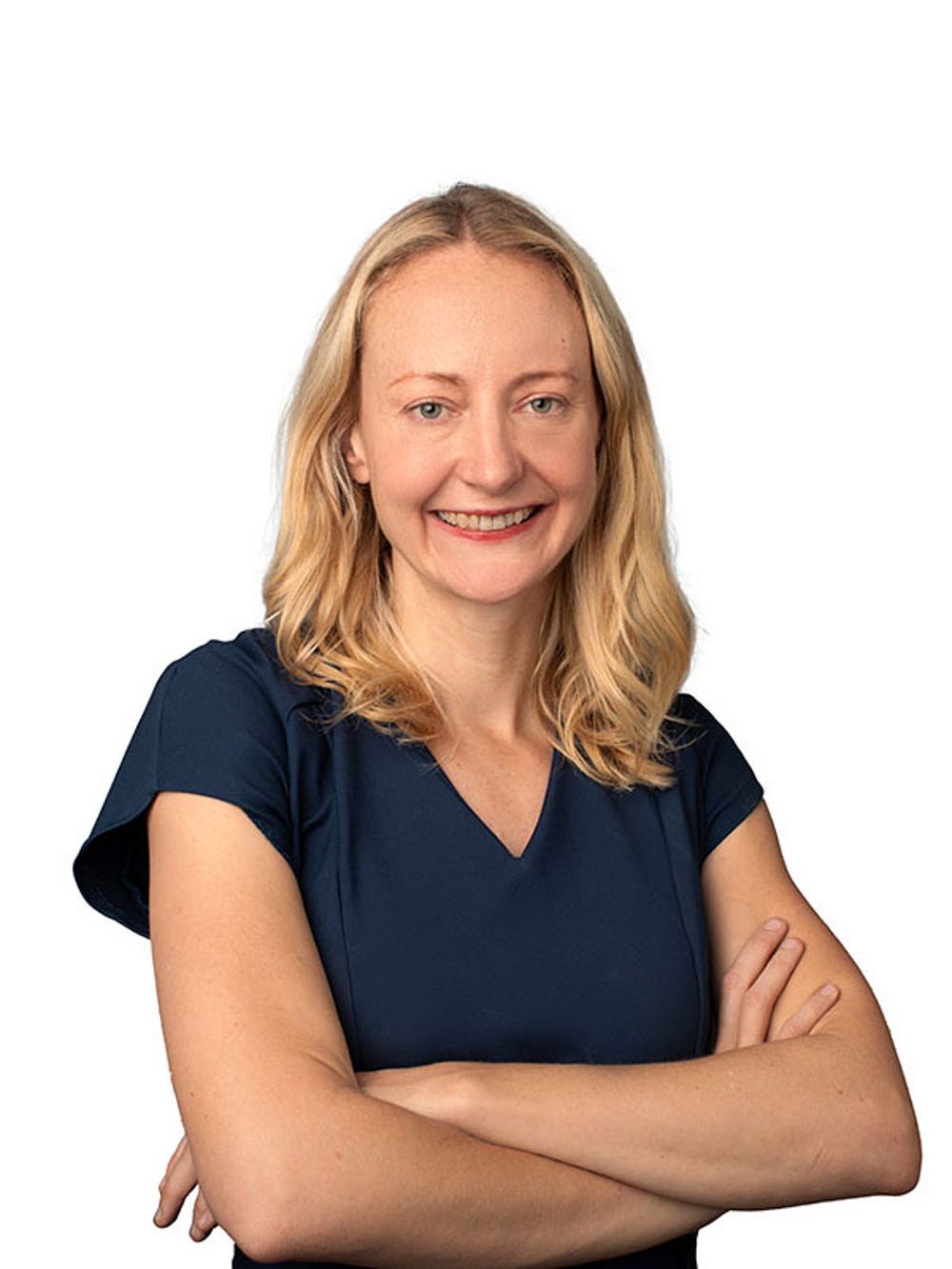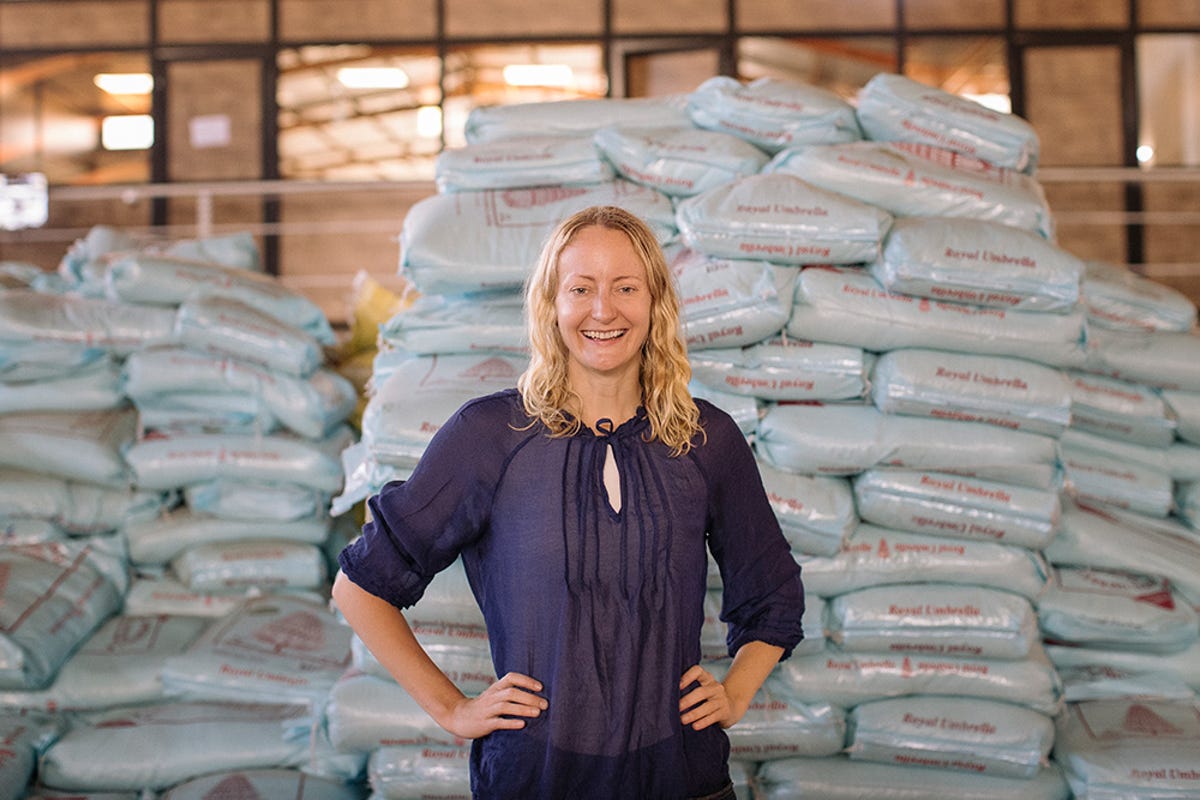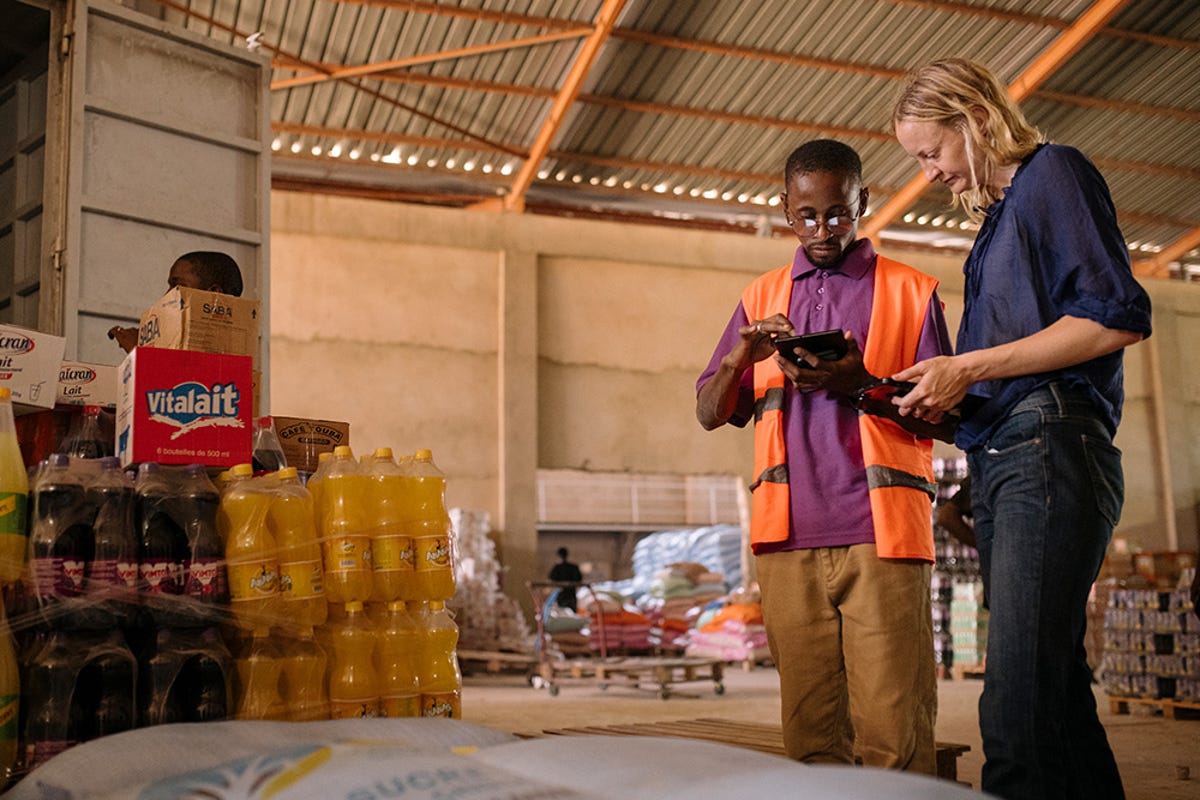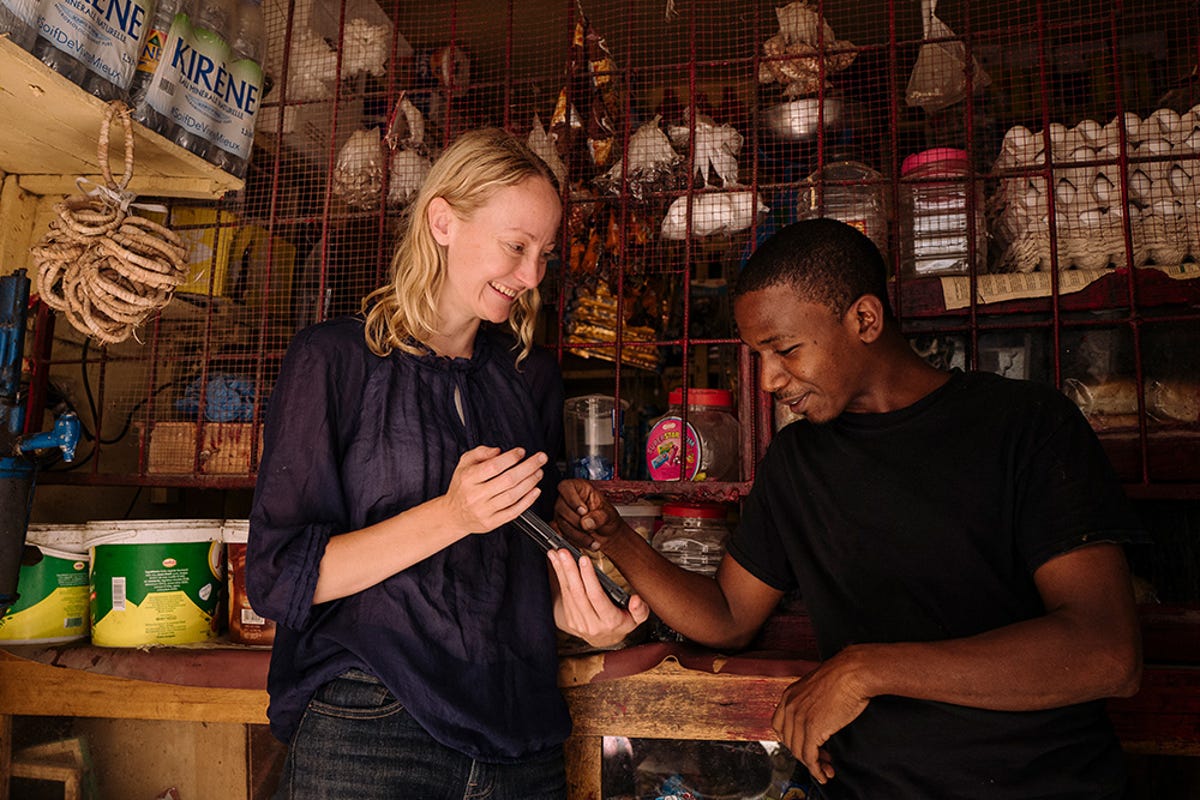Fellow Portrait
Jessica Long
Maad

Maad supplies everyday household products to thousands of small shops as part of its mission to modernize informal retail in Francophone West Africa.
Francophone Sub-Saharan Africa
Senegal
Fellow
2024
Updated March 2024
Unfulfilled logistics needs mean inconvenience and high food prices for Senegalese consumers
In Senegal, more than 90 percent of households purchase necessary food items at small informal retail boutiques within walking distance of home. However, distribution challenges mean that key products often go missing and prices are unnecessarily high.
While households usually can meet everyday needs at their local shop, that ability depends on distributors’ ability to source, consolidate, and efficiently dispatch products to tens of thousands of shops.
“I buy things like powdered milk, powdered coffee, and big bottles of water at the local boutique,” says Maad co-CEO Jessica Long. “But sometimes there are no ten-liter bottles of water so I have to walk to several boutiques. At some point I might give up. Do I drive to the store? Do I wait until tomorrow for water?”
I've been looking my whole career for a way to leverage my professional skills, which are software and data, to provide basic services in a way that is meaningful on a national scale.

Maad creates an efficient shared infrastructure for small shop owners
Until now, nobody has offered tools to assist Senegal’s 20,000 informal retailers with inventory, procurement, and insurance. “Aside from the informal networks they build, these informal shops have been overlooked,” Jessica says.
She started Maad, an e-commerce marketplace, to directly connect brands with small retailers, smoothing distribution and making life easier for consumers. The company—named after an iconic Senegalese fruit—provides an app where small shop owners place orders without leaving their shop. With her two co-founders, Jessica thought African businesses could benefit from better data collection tools.
She describes the insight she had about Senegal’s large water and dairy companies. “They want to visit every one of Dakar’s 20,000 informal shops to ensure product availability. If we did the same thing they were doing, but sold all the products instead of a single one and consolidated suppliers onto the same platform, it would be so much easier. Using shared infrastructure makes a lot more sense.”
Maad carries more SKUs and supplies ten times as many shops as other distributors. Unlike other suppliers, Maad offers free delivery on every order, saving shop owners money and time away from their shops. It also offers price transparency; even merchants who don't buy from Maad can consult market prices to improve bargaining with other suppliers. “And instead of waiting in line on the phone, a shop owner can use the app to order any time,” Jessica explains.
Shop owners don't have to visit a warehouse. They don't have to arrange for transport and pay for a taxi to bring an order by horse and cart or go pick it up in their car. We deliver tomorrow or the same day for free.

Building small retailers furthers development in Senegal and beyond
The company’s 6,000 or so monthly active small retailers sell goods to about a third of Dakar’s population, with plans underway to expand to outer geographical regions. Thanks to Maad, shop owners sell more goods and use the money to finance education, travel, and healthcare.
“It benefits everybody to have these entities that reach everybody and provide basics like food, beverages, and household cleaning products,” Jessica says. “It's exciting to be able to lower the cost of those household goods and provide an important service for small businesses that play a critical role within the economy, to help build larger entities that are going to push forward development.”
The money Maad saves for informal shop owners sends kids to school. It sends people on trips. It helps sick mothers. Having a little bit more money when you're making US$300 to $500 a month is a really big deal. It’s about greater financial security for everyone.






